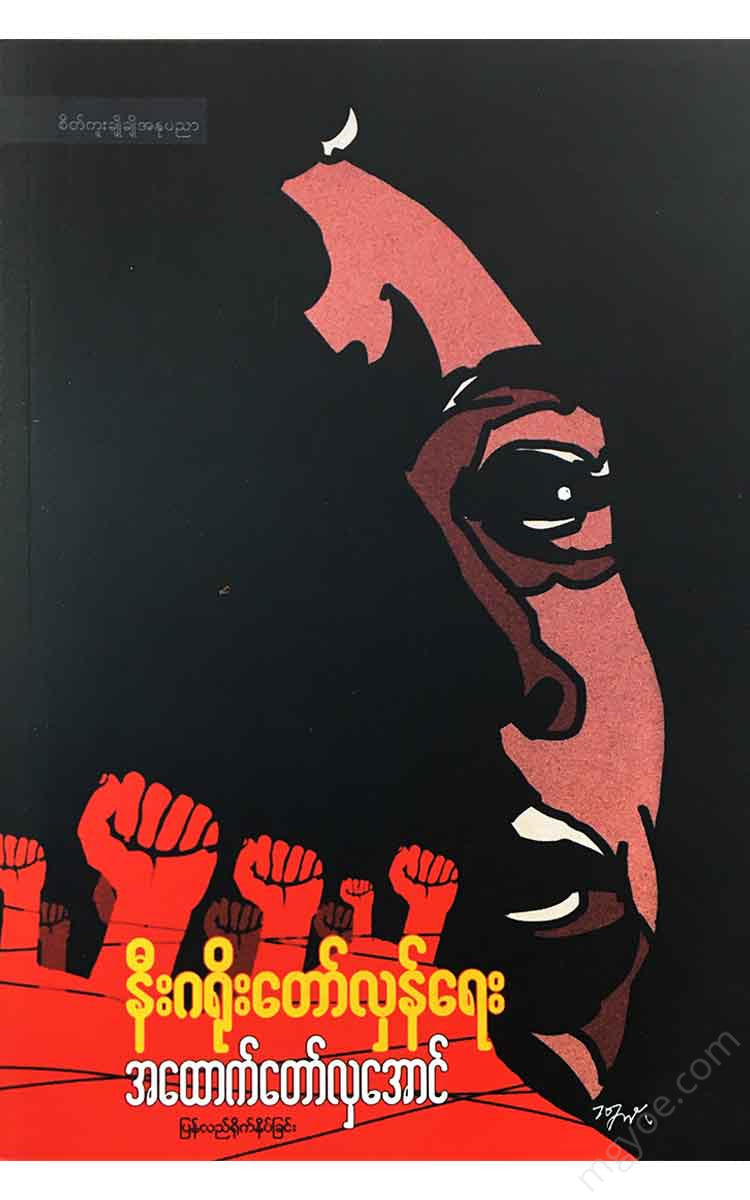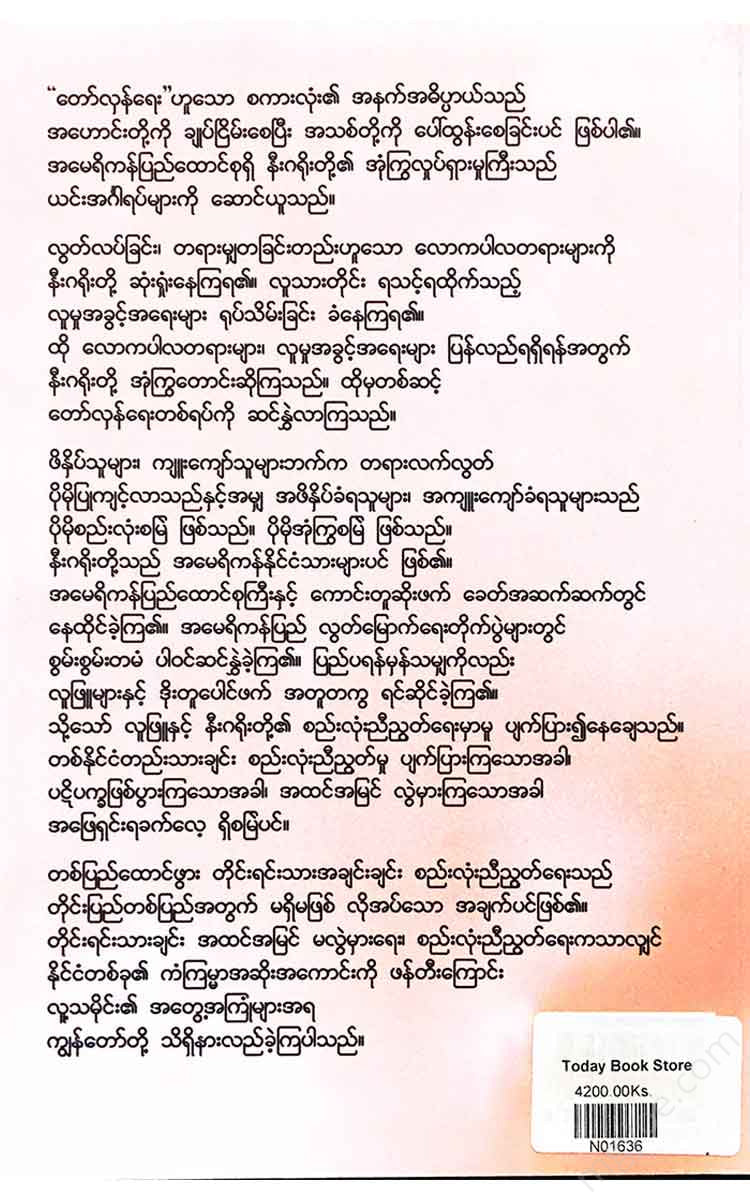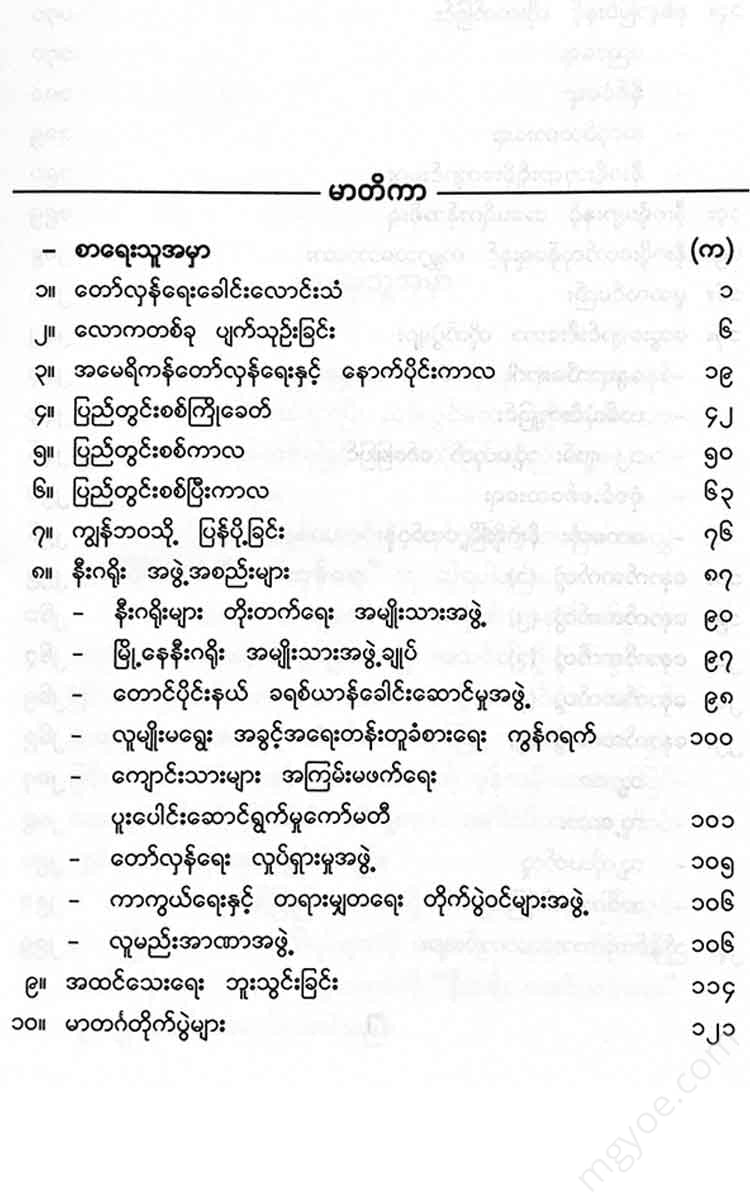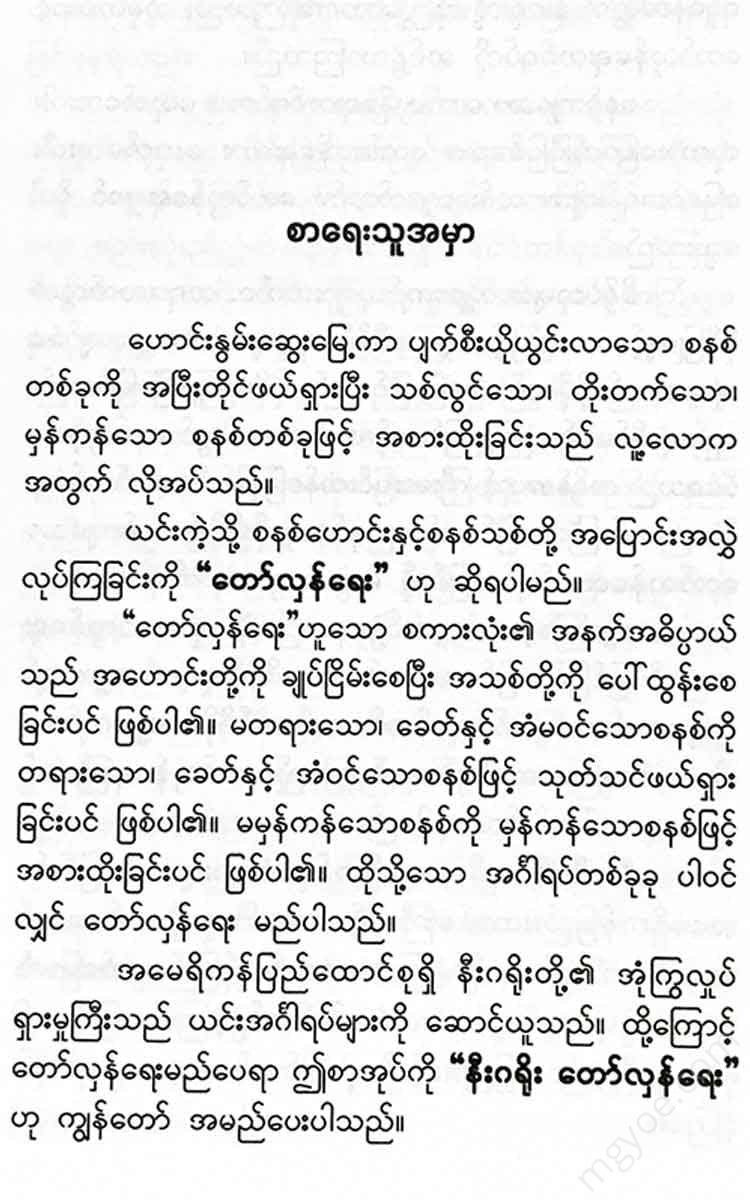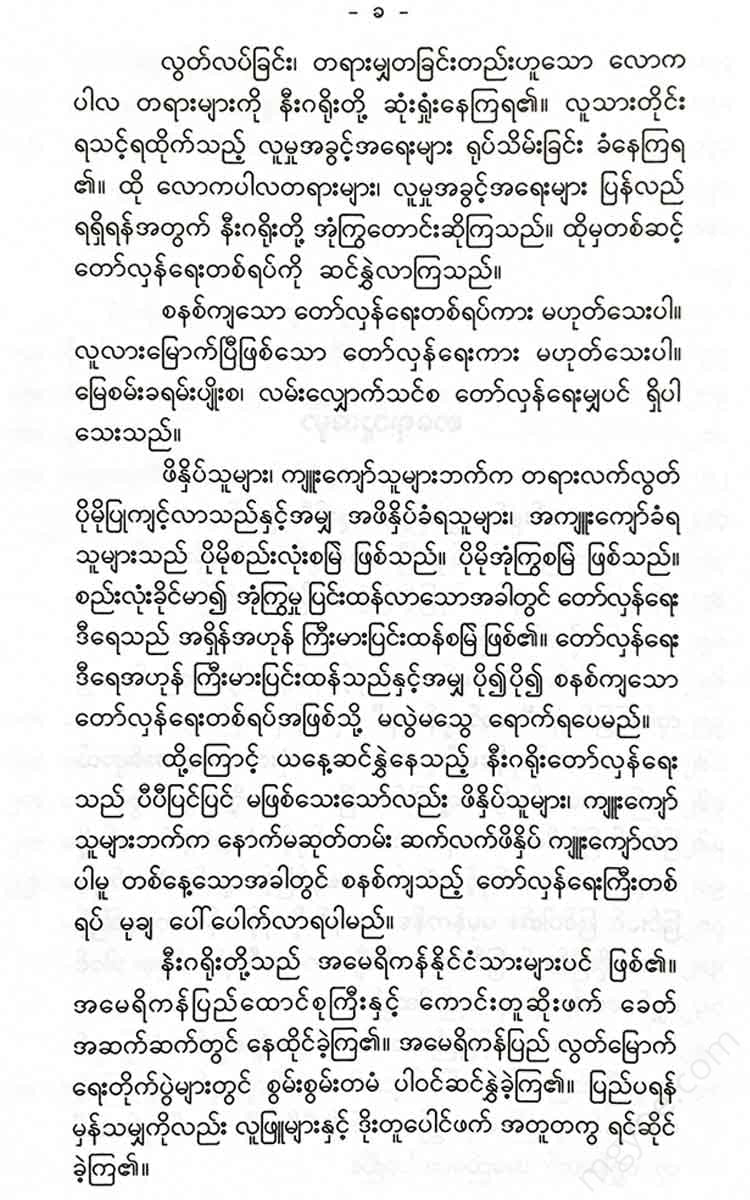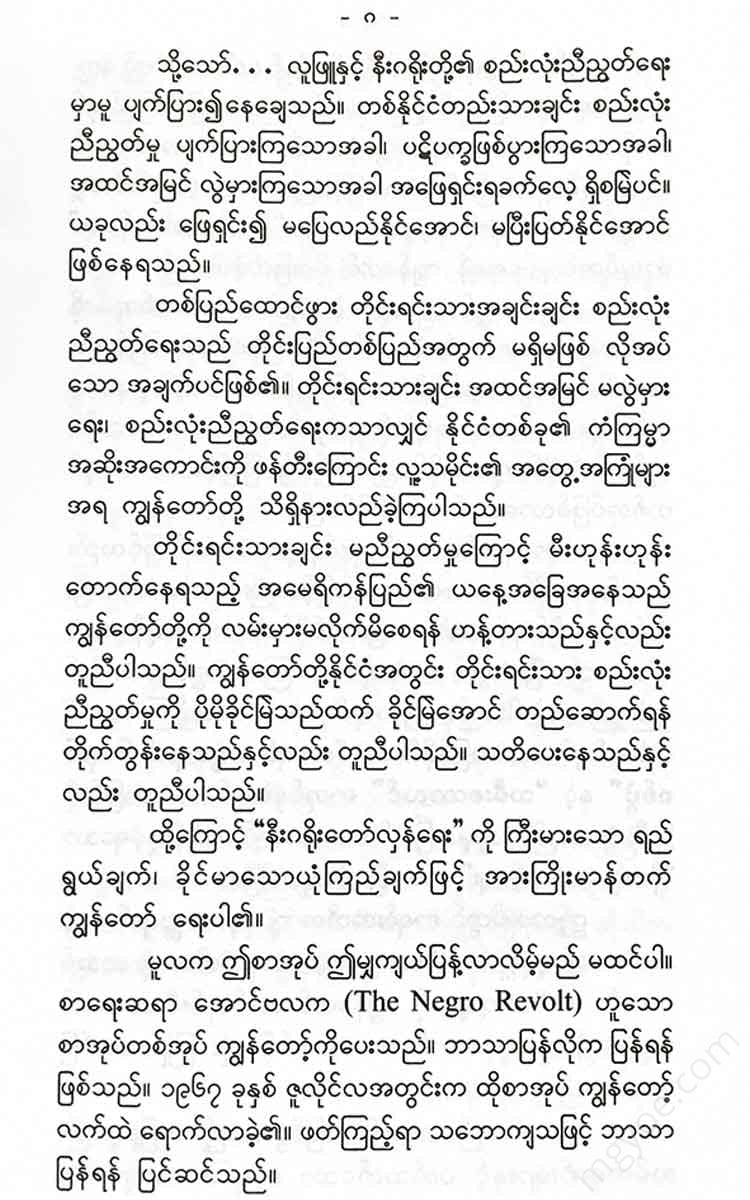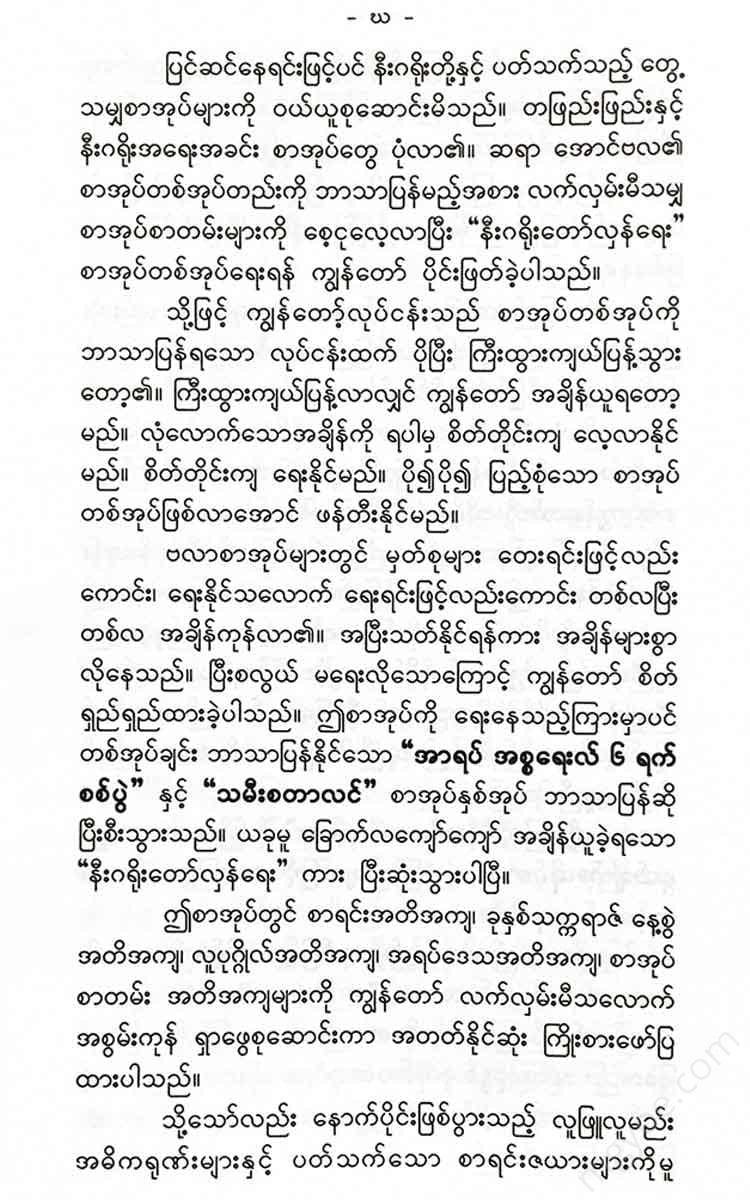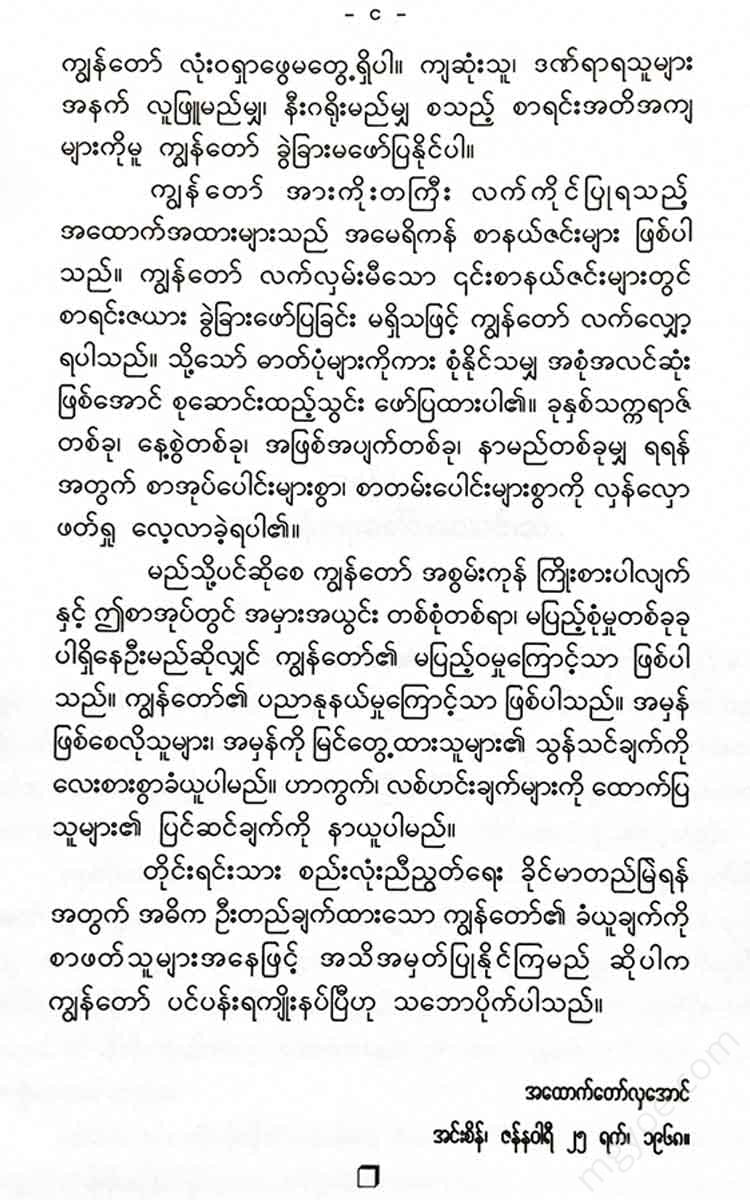စိတ်ကူးချိုချိုစာပေ
Athitaw Hla Aung - Negro Revolution
Athitaw Hla Aung - Negro Revolution
Couldn't load pickup availability
Chapter (1)
The bell of revolution
It's been a day.
Mrs. Rosebud was tired. She had been working all day as a seamstress at the Montgomery Mall. The Montgomery Mall was bustling with customers. One by one, one by one, the clothes were being delivered, and one by one, the buyers were coming in, so fast that they couldn't keep up.
Mrs. Rosebud was measuring the bodies of the dressmakers so that they could not scratch themselves. She was busy among the dressmakers, the measurers, the sewing machines, and the clothes. It was already night. The lights were starting to light outside. The arrival of night meant that Mrs. Rosebud would finally be able to rest peacefully in her own home.
Yes, to rest in one's own home was a word that was priceless, a word that was so deeply meaningful to Mrs. Rosebud, a word that she had longed for all day long.
Mrs. Rose Pat, who had struggled with her widowhood, was over 40 years old. She had toiled away from home for days and nights, working tirelessly at her workplace. It was hard to fill a single ocean. She never stopped working, and she worked tirelessly. Sometimes she had to do two jobs at the same time. She had to do one job during the day and one job at night, and she was always busy with both. If she could do that, wouldn't she be content with just one job and not feel ashamed?
Not only that, Mrs. Rosebud also had to shoulder the heavy responsibility of educating her three children.
Her complexion was dark. There were even spots on her face. In fact, the desirable, attractive, youthful, and fresh beauty was beginning to depart from Mrs. Rosebud. A hint of age was beginning to take hold. However, her speech was calm. She was gentle. She was polite. Her manner was pleasant. So much so that one might mistake Mrs. Rosebud for a schoolteacher.
On the evening of December 1, 1955, in the evening sun, Mrs. Rose Park emerged from the Montgomery Department Store where she worked and would have been mistaken for a shopper. She was neatly dressed. She wore a light blue dress. Her dark hair was neatly combed. It covered the temples of her glasses and her ears.
As she was walking to the bus stop, her left leg started to hurt. The wound on her foot was caused by a shoe injury. It was also swollen. Now, as she had to walk, the wound was causing her pain.
The bus to Cleveland Avenue arrived. She got on the bus. She knew how to ride because riding the bus was her daily job. The seats on the bus were divided into two sections. From the middle, the front seats of the bus were for white people, and the back seats were for colored people.
Mrs. Rose Pat, a Negro woman, sat in the front row of seats reserved for Negroes, right next to the last row reserved for whites.
It was a time when commuters were piling up in the suburbs of Montgomery, Alabama. Every bus was packed. At the bus stops, both whites and blacks were crowded together, waiting for their buses. Many buses could no longer wait for passengers, and many whites and blacks were left at the stops.
As soon as Mrs. Rosepatt sat down in the front seat reserved for Negroes, the bus driver ordered her and three other Negro men to move to the back. The driver was also a white American, and he ordered the white Americans who were standing to sit down.
In fact, the Negro men who were ordered to stand up with Mrs. Rosebud were sitting in the Negro seats legally assigned to them. Now, while they were sitting in their seats, they were to stand up. The white Americans who did not get a seat were to sit in the seats assigned to their Negroes. The Negroes, like the Americans, paid the full fare. They could not be reduced by a penny. In the meantime, being ordered to ride sideways, on the other side, Mrs. Rosebud thought about how different people, with their heads between their shoulders, were from each other, breathing the same air, and having different rights. She also resented the system of not treating people as people, as people.
Another thing is that Mrs. Rosepat is a woman who is a little older. She is also a patient who can no longer stand up due to a wound in one of her legs. She has been working hard all day long. Now she is the first, the first to arrive. Is it not possible to sit in such a place?
Not only that. Look at the white Americans who are supposed to be standing. They are healthy, strong, and healthy. They are young and beautiful. They are strong, strong men. If such people have to sit in their seats and a sick person like them has to stand up, what do you call the right of a human being? .
Where are the worldly values of justice and freedom, which all people should have equal access to?
The three Negro men humbly obeyed the orders of the white American bus driver. They followed the path of silence. Because of the oppression they faced everywhere, surrender seemed natural to them.
But... Mrs. Rosebud is a widow. She bravely faced injustice. She rejected the driver's oppression by sitting still and not moving an inch. She fought for human rights.
However, her struggle did not end peacefully. The struggle for human rights was not won. The police arrested Mrs. Rose Park for disturbing the peace, maintaining order, and destroying the rule of law. The sick Negro hunter was taken to the police station by bus, but there was no sign of any disturbance. Her struggle for human rights ended in a police cell.
From that moment on, within five minutes, a major civil rights movement began. Hundreds, thousands of Negroes began to rise up.
In fact, Mrs. Rosepat was no different from shouting the battle cry in the loudest, most piercing, most eloquent way.
When we become human, it is no different from making the most intense, profound, and meaningful claim to the human rights that humanity will receive.
It is no different from ringing the bell of the civil rights revolution of the entire Negro nation, the loudest, the loudest, and the most relentless.
This is how the bell of the Negro Revolution continued to ring. Over the next 12 years...
